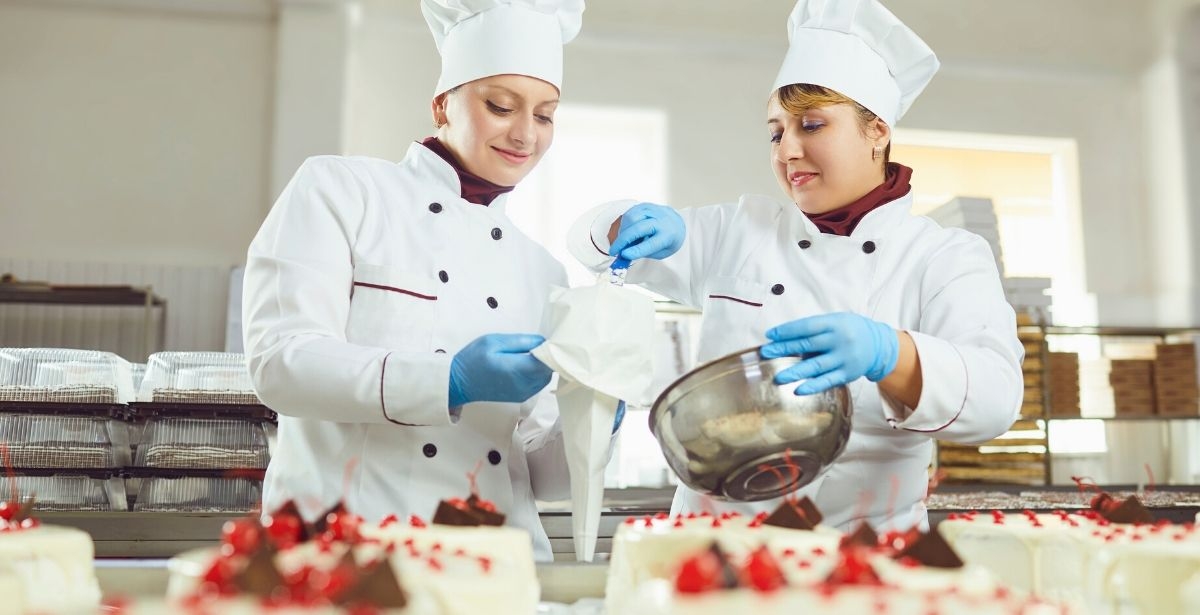
Top 4 Things Every Pastry Artist Should Know
Have you ever seen an amazing cake and thought, wow it looks too pretty to eat? But then you took a bite and discovered that it tasted even better than it looked! How is that even possible? That’s the work of talented pastry artists who have a genius for turning delectable desserts into works of art. If you have a taste for pastry art, here’s what you’d need to know to be a part of this rewarding profession.
The Science of Baking Pastries
Baking is science! As a pastry artist, you combine just the right ingredients in exact measurements and produce results that are both delicious and predictable—when you do it correctly. Even the simplest pastries and desserts start with a basis in science. When you blend sugar and butter to begin that cookie recipe, you also introduce air. Add a teaspoon of NaHCO3 and you’ll help those cookies rise. That’s just baking soda—but it’s also a chemical, causing a chemical reaction. And in the heat of your oven, some crazy science happens every time you bake. Consider that simple cookie:
- First, the butter inside melts, the dough loses its structural integrity and starts to spread.
- Second, the water in the dough turns to steam and the cookie starts to rise. With the help of the baking soda, it rises still further. The gases create tiny holes inside the cookie, making it light and fluffy.
- Third, the sugars in the dough break down filling the cookie with magic deliciousness. And then a process known as the Maillard Reaction involves the sugars and proteins from the eggs and flour, turning an original blob of dough into something simply irresistible in taste and presentation.1
Food Safety & Nutrition with Pastry Arts
Ever since 2018 when the Food & Drug Administration required many restaurants to list nutritional information on their menus, lots of other restaurants and bake shops have followed suit. If you prepare food for a living you need to know a lot about what’s in the pastries you create. From the calorie count to exact ingredients, you’ll be the expert. And it’s not just for diet-conscious people watching their waistlines. Neglect to tell your nut-allergy customer that your famous Linzer torte is made with almonds and they could be in serious trouble. And so could you!
Food safety is critical if you’re a pastry chef. You’ll need to follow proper procedures for handling food, constantly washing your hands and keeping work surfaces clean. You’ll also need to know the proper storage temperature for your raw ingredients and cooked goods. And you’ll need to pay attention to expiration dates. You don’t want anyone to get sick because of something they ate that you created.
Creative Skills as a Pastry Chef
Did you know that people find that food actually tastes better when it is well-presented?3 As a pastry chef, you will need to use your best creative skills to make food masterpieces. You’ll create visually appealing pastries, pies, tarts, soufflés, and more. You’ll decorate cakes and use chocolate and sugar decorations. And with your artistic sense, you’ll plate your creations in a way that is a pleasure to eye as well as the palate.
Technical Skills with Pastry Arts
But how are you going to create all those wonderful treats? With the right pastry arts technical skills. You’ll need an extensive knowledge of how to create. You’ll need basic culinary knowledge and advanced skills using the tools of the trades:
- Knives
- Mixer
- Pastry Blender
- Whisks
- Cake Levelers
- Pastry Bags
- Drizzle Tool
- Pie Crust Shield
- Egg Separator
- Crème Brulee Torch
- Thermometer
- Scale
If you think you have what it takes to become a pastry chef, you’ll need to acquire the right skills. At The Pennsylvania School of Culinary Arts (a division of YTI Career Institute – Lancaster), you could earn your diploma in Pastry Arts in as few as 12 months. Our experienced instructors have a passion for pastry arts and teaching you! Contact us today to find out how to get started on your new career.
2 https://www.fda.gov/food/food-labeling-nutrition/menu-labeling-requirements


